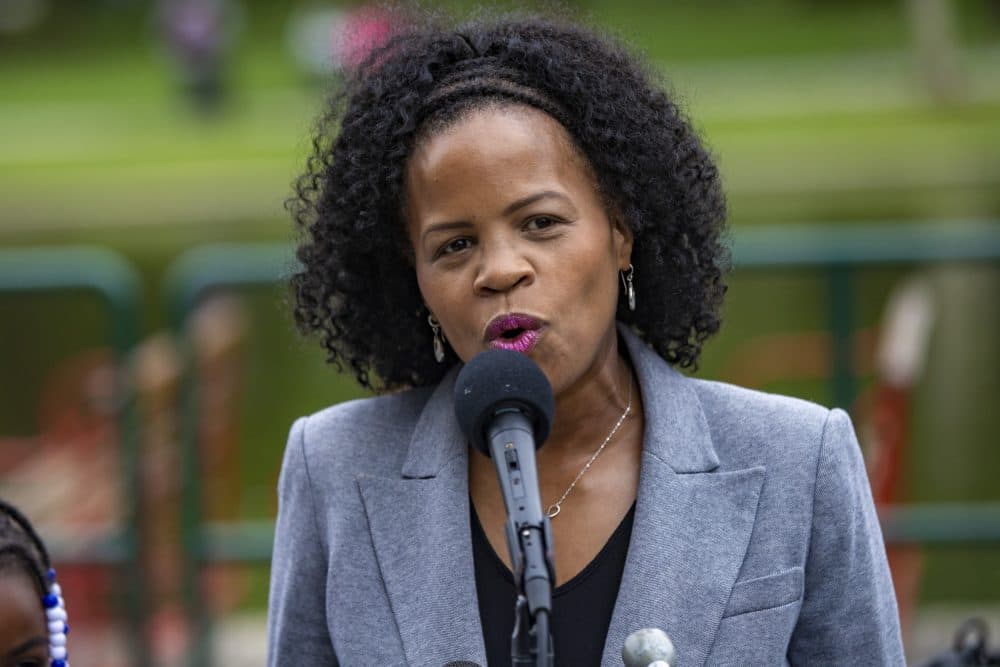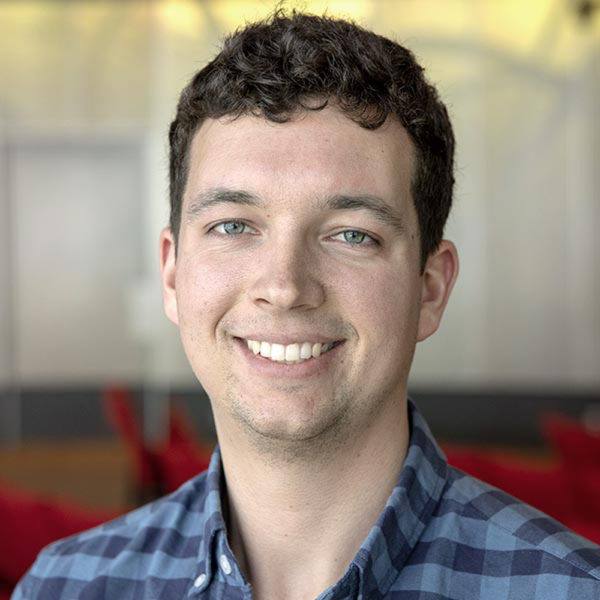Advertisement
Meeting The Candidates For Mayor Of Boston: Kim Janey
Resume
Radio Boston continues its series of conversations with the leading candidates vying to become the next mayor of Boston.
Below are interview highlights from a conversation with acting Mayor Kim Janey.
Interview Highlights
On why she believes she's the right person to lead Boston now:
"I am leading our city as the 55th mayor, as the first woman mayor, as the first Black mayor — with my own lived experience, with my professional experience — informing how I lead and how I govern.
"From day one, [I] stepped in during a time of unprecedented challenges; making sure that we were prioritizing the people of Boston; dealing with the pandemic; multiple challenges and scandals with our police department; bringing our children back into the classrooms in the spring again this fall; reopening our city. [I've been] leading from day one, with leadership and experience.
"I bring to this race obviously a life experience that is different than all of my predecessors, and it is a lens of equity, of justice and love. I understand as an advocate, as someone who has 30-years-plus experience in the nonprofit world, including nonprofit management, the importance of advocacy — that is what I have done throughout my career. I bring that same advocacy and urgency, because now is the moment that we cannot squander. We have to make sure we're doing everything to bring all of our residents together to meet this moment, to make sure that our goal isn't to go back to normal — but to go better. To make sure we are creating a stronger Boston, and a Boston that is more equitable, just and resilient."
On what she says makes her most qualified to be mayor:
"I am the only person in this race who has experience leading a major urban city — not just leading the city, but through unprecedented challenges. Whether COVID-19, or the income inequality and the racial wealth gap that it helps to create, or the challenges in our schools, with our economy, I'm the only one who has experience leading a city of 18,000 employees — close to 700,000 residents — with a $3.75 billion budget, which I successfully passed only weeks after being in office with a decisive vote.
"In terms of my professional experience, it's the nonprofit world. Thirty years of advocacy, putting forth policies that lift up children and make sure we are promoting equity in our schools. It is my own lived experience having overcome a number of challenges, whether that be going to Boston Public Schools and being bussed at 11 years old during the battles to desegregate Boston Public Schools. My experience as a young single mom on Section 8 and making sure I could give my daughter every opportunity, despite living in poverty, despite the conditions that were around us."
On the proper role of the mayor in mandating public health behaviors:
"The role of the mayor is to lead the city to make sure we are doing everything possible to protect our residents. That is what I've done, and that is why close to 70% of residents across Boston have at least one shot in their arm. That didn't happen by accident. That happened by my leadership. Since I've been mayor, there's been a 40% increase in the number of vaccines we have this year. We have seen increases along racial lines and across every neighborhood.
"This is a global pandemic. And first and foremost is protecting and prioritizing the people of my city. That is what I have done as mayor, through a number of initiatives, including prioritizing vaccine access and information, as well as the mask mandate and everything that we have done from day one, always being informed by the data, always keeping the people of Boston first and foremost."
On criticism she's received around not supporting the idea of proof of vaccination for access to large public places in Boston:
"My leadership has led to the city of Boston being one of the most vaccinated big cities in the country. ... Just in the last three weeks alone, 12,000 residents got vaccinated. That is the work that I am doing as mayor, and I will continue to prioritize the people of Boston and not politicize the pandemic.
"... I will continue to focus on getting vaccinations into people's arms, making sure that we are slowing the spread, that we are getting information out, that we are meeting people where they are, making sure that everyone can make informed decisions about the vaccine as we continue to live with COVID-19."
On what further steps are needed on police transparency and reform in Boston:
"I have done already, in just weeks of being mayor, more to ensure transparency and accountability than anyone before me. That is unrefuted. We will continue to lead on transparency: making sure we are releasing files of our police, making sure that we continue to build up the Office of Police Accountability and Transparency, that we are also reimagining policing in our city.
"We have to do much more around community policing, which also means we have to reimagine how we respond to crises. I have put forth an initiative of a mental health response that looks at co-response, alternative response and community response, particularly as it relates to mental health crises. If we have someone who is having difficulty due to an episode around mental health, we need to make sure that there are experts on the ground who can be there as a first responder. [Someone] who can help, who can assist, who has expertise in this field. ... And we want to make sure, again, that we are responding appropriately when it comes to public health so that our police officers can focus on public safety, so that they are free to focus on the most violent crime in our city.
"... We also need more diversity, which is why I've increased our cadet program by 50% in the [fiscal year] '22 budget. That's why we've invested in racial equity training for our police officers. We know that Boston police officers work hard. We know that people all across our city do. But we also know wherever we have challenge, we've got to meet the moment and make sure we're supporting our workforce, and that we're moving toward safety, justice and healing in every single neighborhood."
On people struggling with homelessness and addiction near Massachusetts Avenue and Melnea Cass Boulevard:
"This is a very difficult situation that has been years in the making. And we know that COVID, like with so many other issues, has made this particular challenge worse. Our team continues to do work on the ground — not just cleaning the area, but making sure that there is a public health response. In the last week alone, 55 individuals were referred to treatment. That is the good news. We are getting more and more folks connected to services, which is the good news.
"But we've got to revamp our approach: starting with the task force [and] making sure that we are doing more with the courts. We had a great meeting, one of many with the DA's office, around coordinated response and approach to this challenge. Too much of it has all been left to the city of Boston. We know that history, when the bridge [to Long Island] came down seven years ago, and we need not only to have a coordinated approach between agencies here in our city, but with municipalities across the region.
"Addiction knows no boundaries. I know many of us have had experiences in our own family. That certainly is true of myself. Unfortunately, when I was a teenager or young adult, I lost my uncle to an overdose. [He] was found dead with a needle in his arm. We've learned a lot since that time, that this is a public health crisis and that we've got to respond accordingly."
On whether Janey would support continuing to pursue an earlier plan, now in jeopardy, to transform the vacant Best Western hotel on Massachusetts Avenue into transitional housing:
"I think through the community engagement process it was made clear that this would be a challenge. There was a successful model in that same hotel, but one thing we know we need to do is decentralize services here. They're licensed by the state and we need more across the commonwealth. And fortunately, the governor has made some investments now so that we will see some more programing across the state and not just here in Boston.
"But even in our city, we know addiction knows no boundaries. We need to do more to have treatment and services in other parts of the city and not just in one area."
This article was originally published on August 27, 2021.
This segment aired on August 27, 2021.

